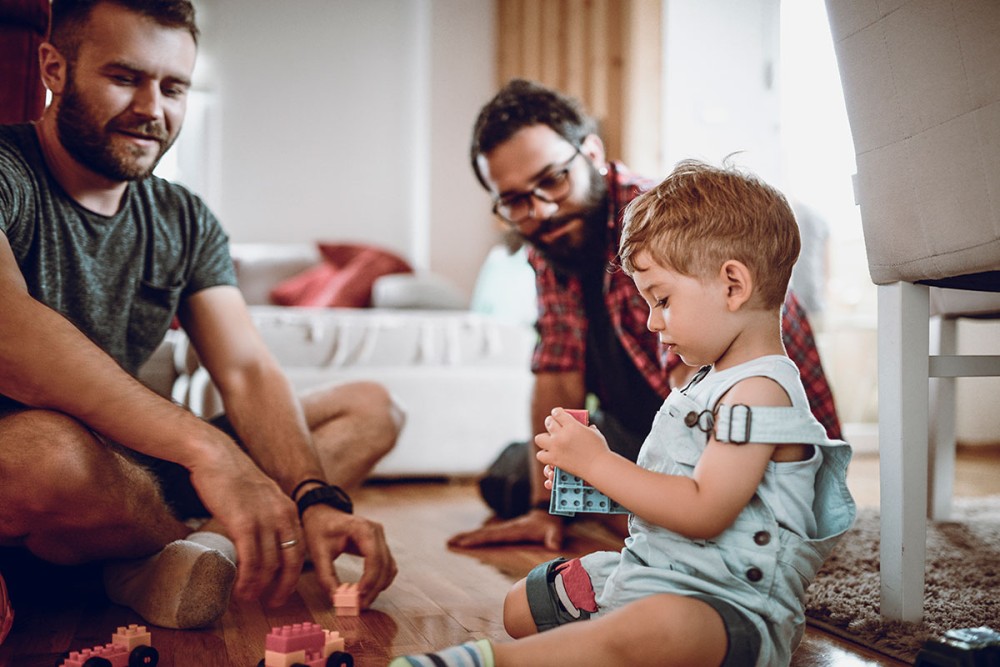Court sides with Catholic foster care agency

In another victory for religious groups at the Supreme Court, on June 17 the justices unanimously sided with a Catholic foster care agency that says its religious views prevent it from working with same-sex couples. The court said the City of Philadelphia wrongly limited its relationship with the group as a result of the agency’s policy.
The ruling focused narrowly on the facts of the case, sidestepping broader questions about how to balance religious freedom with antidiscrimination laws and turning instead on the language in the city’s foster care contract. Three conservative justices would have gone much further, and LGBTQ groups said they were relieved that the decision was limited.
Read our latest issue or browse back issues.
Chief Justice John Roberts wrote for the majority that Catholic Social Services “seeks only an accommodation that will allow it to continue serving the children of Philadelphia in a manner consistent with its religious beliefs; it does not seek to impose those beliefs on anyone else.”
Roberts concluded that Philadelphia’s refusal to “contract with CSS for the provision of foster care services unless it agrees to certify same-sex couples as
foster parents . . . violates the First Amendment.”
Roberts noted that no same-sex couple has ever asked to work with Catholic Social Services, which is affiliated with the Archdiocese of Philadelphia. If that were to happen, that couple would be referred to one of the more than 20 other agencies that do work with same-sex couples, Catholic Social Services has said.
“For over 50 years, CSS successfully contracted with the City to provide foster care services while holding to these beliefs,” wrote Roberts, one of seven current justices who is Catholic or attended Catholic schools.
Because of its beliefs, Catholic Social Services also does not certify unmarried couples.
In coming to the conclusion that Philadelphia had acted improperly, Roberts said the city gave CSS a choice between “curtailing its mission or approving relationships inconsistent with its beliefs.”
He also pointed to language in the city’s standard foster care contract. The contract says that agencies cannot reject prospective foster or adoptive parents based on their sexual orientation “unless an exception is granted.” Because the city created a process for granting exemptions, it cannot then deny CSS an exemption, Roberts concluded.
The case’s outcome was similar to a 2018 decision in which the court sided with a Colorado baker who would not make a wedding cake for a same-sex couple. That decision, too, was limited to the specific facts of the case and dodged larger questions. But the court has grown more conservative since that ruling.
Three conservative justices who joined Roberts’s opinion said they would have gone further. Justices Samuel Alito, Clarence Thomas, and Neil Gorsuch said they would have overruled a 1990 Supreme Court decision that they said improperly allows limits on religious freedom.
Alito called the court’s ruling a “wisp of a decision.” Gorsuch said it was an “(ir)resolution,” predicting that the litigation would continue, with the city perhaps rewriting its contract.
Philadelphia city solicitor Diana Cortes called the ruling a “difficult and disappointing setback.”
In a statement, she said the court had “usurped the City’s judgment that a nondiscrimination policy is in the best interests of the children in its care.” But she said the city was also “gratified” that the justices did not “radically change existing constitutional law to adopt a standard that would force court-ordered religious exemptions from civic obligations in every arena.”
A lawyer with the Becket Fund for Religious Liberty who argued the case on behalf of CSS called it a “common-sense ruling in favor of religious social services.”
“The Supreme Court recognized that CSS has been doing amazing work for many years and can continue that work in the city of Philadelphia,” Lori Windham said. —Associated Press. Associated Press writer Mark Sherman contributed to this report.






